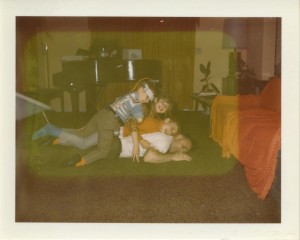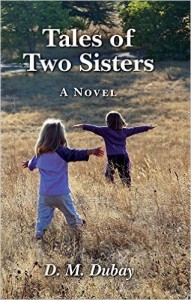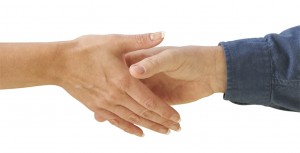 Families not only have an influence on how we approach problems in life or the blueprint we follow, but it can have an effect on the course of our marriages.
Families not only have an influence on how we approach problems in life or the blueprint we follow, but it can have an effect on the course of our marriages.
It is important to remember, that regardless of our upbringing and past experiences, we are not prisoners of our past.
With knowledge and understanding, we gain personal power to make better and more appropriate choices.
While family dynamics help shape and mold us, there is another component that can have an effect on our relationships that few people think of.
Long term research confirm that our birth order and position within our family of origins has an emotional effect on our lives in predictable ways. It is a phenomenon that occurs in all cultures and countries.
Where do you fall within the structure of your family? Were you the oldest, the middle child or the youngest? How did you feel about your siblings? Did you feel lost within the family, or feel that others received special privileges while you always had to be the “good one”?
As we grow up, we struggle with issues of “closeness and distance.” According to Dr. Ronald W. Richardson, author of Family Ties That Bind, many “outwardly independent people” are in reality only “pseudo-independent.” They use distance as a way to control their fears about getting too close. “They may have tremendous needs for closeness, but have become afraid of it, so they distance instead.” We often choose a partner that compensates for our unspoken needs.
Here is what long term birth-order research reveals
The oldest child tends to become more serious, reserved and less playful. They are high achievers, highly motivated to succeed and are often perfectionists. They assume leadership roles. They can find it difficult to accept criticism and may resent the attention given to younger members of the family.
Being caught in-between, middle children often have difficulty with identity and may not feel special. Typically, they crave attention, thrive on friendships and affection and have a large social circle. There is a tendency to become people-pleasers and feel competition with older siblings. They may struggle with identifying and developing their abilities.
Younger children are often considered spoiled by their older siblings. Because parents have learned better parenting skills, they treat later arrivals differently. There are fewer expectations and less pressure. Younger children are typically optimists with positive expectations about life. The offside to this is they may lack self-discipline and have difficulty making decisions. Typically they are more fun-loving, outgoing and charming. They can be attention-seekers and more self-centered. While the older child may consider them to have had more privileges, the youngest can feel inferior to the older siblings.
Only children tend to be well-organized, often perfectionists. They are comfortable with responsibility and in the spotlight but do not take criticism well. They may lack the social experiences of give and take that children growing up in larger families have.
Impact on future marriage
When two oldest birth order children marry or two youngest, the dynamics of the marriage can have a different effect than for example a marriage between an oldest and youngest. Birth order does make a difference in future long term relationships.
Although these are only tendencies, understanding their potential influence can help us develop communication and negotiation skills that address these challenges and find ways to enrich our marriages.
How Is your birth order influencing your current relationships
Consider the following and work through the questions:
- What position did you have in your family tree? Do you see any of the birth-order tendencies and interactions within your family?
- Did you believe that Mom or Dad favored your sister or brother more than you? Can you expand your view of these circumstances with the new birth order information?
- What childhood grievances have you hung onto that may have had their origins in birth order? Do you still want to hang on to them? If not, consider starting a conversation with siblings or Mom and Dad.
- Do the beliefs about your family continue to divide or separate your family? Have you tried to make contact with an estranged family member? How do you think their family memories would differ from yours?
- How can this information change how you raise your own children? For example, can you spend some special, undivided, one-on-one time with each of your children, even if it is just for a small amount of time. Let your children know you love them even when their behaviors are unacceptable. Regardless of birth order, personality traits or emotional problems, when children believe they are loved, it has a huge balancing effect over any problems they may be experiencing.
As you go through this series, keep a special notebook to record what the things you want to do to enhance your relationships.
For those interested in Personal Life Coaching for this series or past series, fill out the contact form for a free consultation. Contact me also for speaking engagements or retreats for your church or women’s groups on this or other topics that relate to our relationships with each other and with God.
Marlene Anderson
Sign up today to receive the entire series: http://eepurl.com/baaiQ1
Also in the RELATIONSHIPS series:
Part 1: Relationships: Who Needs Them?
Part 2: Relationships: Where Do We Start?
Part 3: Relationships: Love Them or Hate Them
Part 4: Relationships Book Feature: Tales of Two Sisters
Part 5: Relationships: Oh Those Growing Up Years









